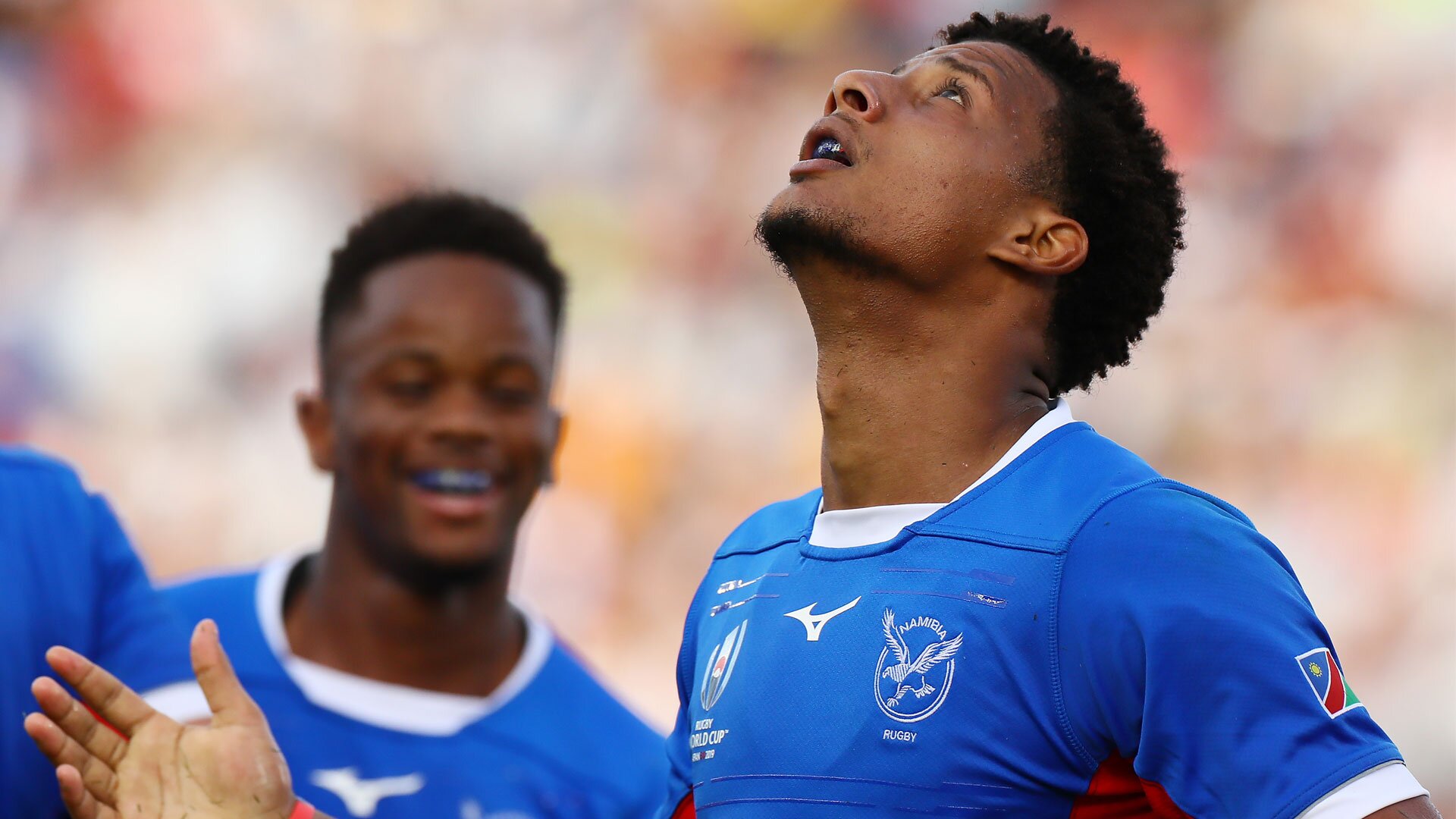Namibia's 20 years of World Cup misery could change this weekend against old foe

Namibia appeared in their first Rugby World Cup back in 1999.
They were comprehensively outplayed in all three of their matches, ending their campaign with an average score of 14-62.
Since then, Namibia have competed in a further five tournaments, courtesy of being easily the second-best side in Africa – but they’re still yet to record even a sole win in 22 attempts.
That could all be about to change this Sunday, when Namibia travel to Kamaishi to take on Canada.
Namibia entered the 2019 World Cup with the goal of winning just one game.
Continue reading below…
That’s a fairly lofty goal when your pool includes three tier one sides (New Zealand, South Africa and Italy) as you have just one opportunity to get things right.
No offence intended to Namibia, but they were never going to threaten the big teams in their group (though they certainly pushed the All Blacks for a good portion of their fixture).
That means Namibia’s chances all boil down to what happens on the final day of the regular competition – and coach Phil Davies couldn’t be happier about it.
“We talked before the World Cup about the process of preparing rather than the outcome of winning,” Davies said in the lead up to the match.
https://www.instagram.com/p/B3cTgaNAleL/
“That’s what the focus must be. That in itself can take a little bit of pressure off.
“We’ve wanted to be in this position, to try to achieve a win. We tried to achieve it at the last World Cup. A lot of New Zealand players talk about pressure. It’s about embracing it and enjoying it. We want to be in this position and we just have to go and enjoy it as best we can.”
No team have had a bigger monkey on their backs since the All Blacks finally won a second World Cup back in 2011 than Namibia do now. A victory for Namibia against Canada isn’t just about shaking the monkey, however, it could have massive ramifications for the small African nation.
Josh Larsen's three-week red card punishment for Canada versus South Africa will curiously last four months https://t.co/qfi8ELhiL2
— RugbyPass (@RugbyPass) October 10, 2019
“A win will have a lot of significance because this squad would be able to achieve something the previous five haven’t. That will keep enthusiasm up. It will show the investment we’ve had has shown progression and development. But our progression and development through processes has been incredible.
“The last World Cup Namibia qualified through points difference. This World Cup we haven’t been beaten in Africa for four years. We’ve changed the average age of the squad from 31 to 24. There’s a lot of things that have developed and grown. It’s a big ask to say it all comes down to one game but it is a big opportunity.”
It would be a remarkable achievement for a country of just 2.5 million people where rugby is by no means the most popular sport.
The Welwitschias have been knocking on the door for a number of years now, coming agonisingly close to a victory in 2015 when they fell by just a point to Georgia. Only a week earlier they’d set their previous record of closest match at a World Cup, losing 21-25 to Tonga.
https://www.instagram.com/p/B3bp8OFgEI7/
Fittingly, the potentially historic match will be played at the historic Kamiashi Recovery Memorial Stadium in Kamaishi, a city that was ravaged by natural disasters in 2011.
All signs point to a fascinating game on Sunday, against opposition that Namibia are all too familiar with.
Way back in 1999, Canada were also Namibia’s final opposition of their World Cup campaign.
Canada won that game 72-11. It would take a very brave man to predict a similar result this weekend.
“It will be a cracking match and hopefully fitting for an end-of-pool game and particularly where it is,” Davies said.
“The venue is an inspiring place, the way they’ve built the city after the tragedy eight years ago. Hopefully, both teams can put on a display that will do justice to the legacy of the World Cup.”
Namibia: Johan Tromp, Leslie Klim, Johan Deysel (c), Darryl de la Harpe, JC Greyling, Cliven Loubster, Eugene Jantjies, Janco Venter, Wian Conradie, Prince Gaoseb, Tjiuee Uanivi, Johan Retief, Johannes Coetzee, Torsten George van Jaarsveld, Andre Rademeye. Reserves: Louis van der Westhuizen, AJ de Klerk, Desiderius Sethie, Max Katjijeko, Rohan Kitsoff, Damians Stevens, Helarius Axasman Kisting, Chad Plato.
Heading to Kamaishi for the game, or staying nearby in Tokyo? Make sure you check out what’s on offer in the revitalised city:




































